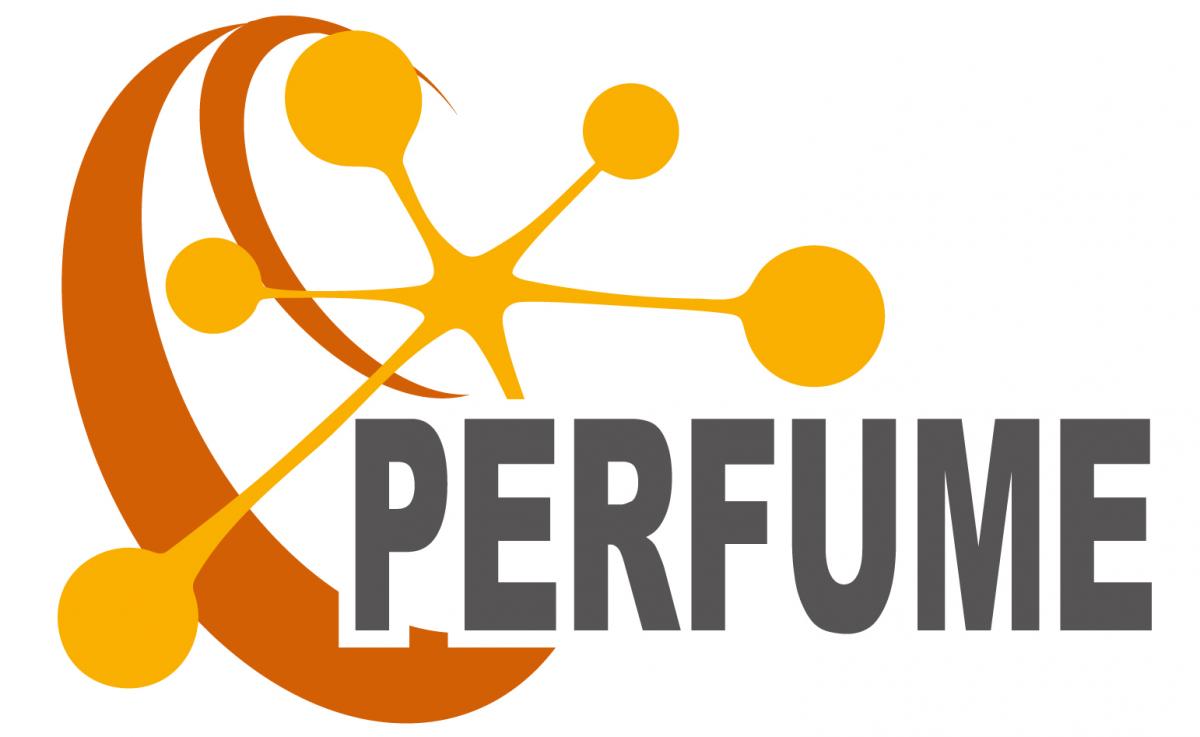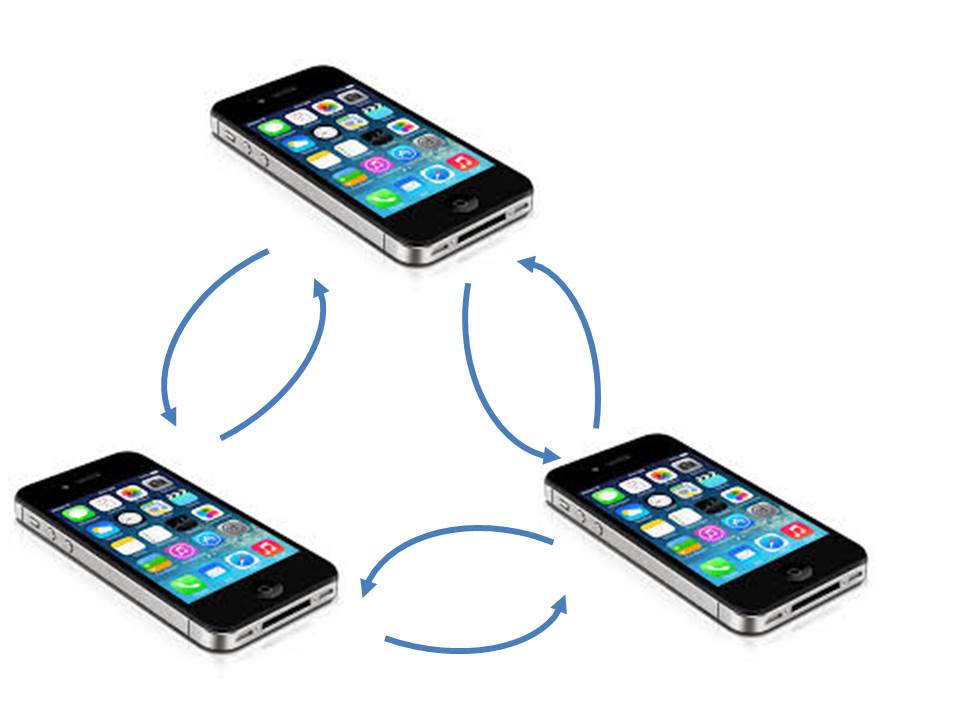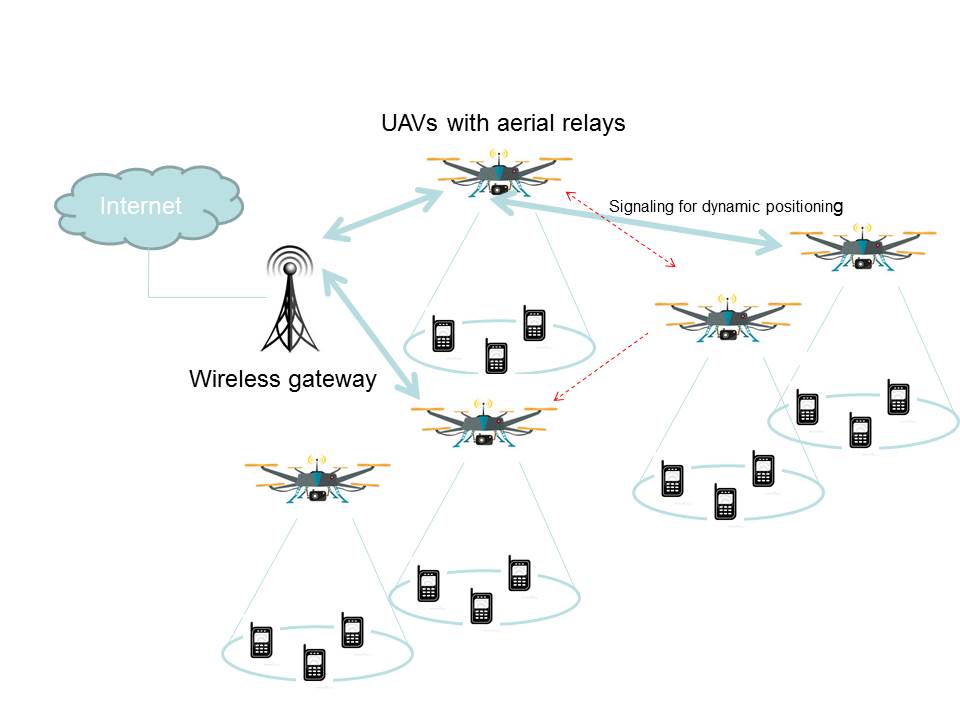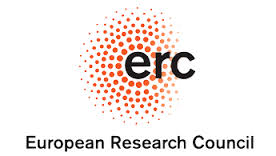Smart Device Communication: A paradigm for high PERformance FUture Mobile nEtworking (PERFUME)
|
|
 |
New: A short VIDEO highlighting PERFUME's concepts is now available HERE.
PERFUME is 5 year ERC Advanced funded project starting in Fall 2015.
Electronic, communicating, devices have become critical to our daily lives and will increasingly impact the development of our economies and societies. Faced with the heterogeneity in the nature of such connected objects (from smartphones, tablets, wireless relays, sensors, to autonomous robot-like devices) and the growing demands for better quality-of-service and greater data traffic volumes, future communication networks will require more intelligent organization solutions thant what is currently available for traditional cellular communications.
On the bright side, our devices are becoming locally smarter and powerful (more computing power to run data intensive applications, more memory,mor sensing capability). Unfortunately, these amazing capabilities are geared at local, individual performance, rather than maximizing performance collectively, as a network.
In response, PERFUME envisions a radical shift in network design and aims at enabling collective intelligence among devices (such as for instance the growing number of objects which are connected to the internet) by tapping on mutual (although partial, limited) communication capabilities between them.
PERFUME combines several fields of theoretical expertise:
- Information and communication theory
- Optimization, game, and coordination theory
- Team decision theory
- Machine Learning
- Autonomous control theory
Such fields are enhanced with an experimentation effort based on EURECOM's Mobile Communications Dept.'s OpenAirInterface platform. An abstract of the project is shown below. Several openings at the PhD, postdoc, researcher and engineer level are available. Please see below for details on the project.

Project abstract
Advances in theory, integration techniques and standardization have led to huge progress in wireless technologies. Despite successes with past and current (5G) research, new paradigms leading to greater spectral efficiencies and intelligent network organizations will be in great demand to absorb the continuous growth in mobile data. With few exceptions such as ad-hoc topologies, classical wireless design places the radio device under the tight control of the network. Promising technologies envisioned in 5G such as (i) Coordinated MultiPoint (CoMP) techniques, (ii) Massive MIMO, or (ii) Millimeter-wave (MMW) by-and-large abide by this model. Pure network-centric designs, such as optical cloud-supported ones raise cost and security concerns and do not fit all deployment scenarios. Also they make the network increasingly dependent on a large amount of signaling and device-made measurements.
PERFUME envisions a new approach to designing the mobile Internet, which taps into radio devices new capabilities. Our approach recasts devices as distributed computational nodes solving together multi-agent problems, allowing to maximize the network performance by exploiting local measurement and information exchange capabilities. The success of the project relies on the understanding of new information theory limits for systems with decentralized information, the development of novel device communication methods, jointly with advanced team-based statistical signal processing algorithms. PERFUME will evidence the potential gains associated with exploiting the devices’ collective, network friendly intelligence, in pushing the frontiers of mobile Internet performance.
PERFUME is organized around a number of study items and subtasks:
- Exploring the fundamental limits of device coordination
- Limits of team decision in wirless networks
- Optimal team communication design
2. Device coordination applied to the future Mobile Internet
- Robust coordinated transmission methods
- Coordinated massive MIMO systems
- Device coordination based on millimeter wave communications
3. Real-life experimentations
- Testbed developments (based on OpenAirInterface opensource protocol stack)
- Autonomous aerial wireless devices

Open positions
Several open positions are available, all directly funded from the ERC. Please see here for details.
PERFUME Visitors
- Prof. Henk Wymeersch, Chalmers University
- Dr Ayca Ozcelikkale, Chalmers University
- Prof. Antti Tolli, University of Oulu (October 2015 - June 2016)
Impact & Dissemination
Invited Talks for PERFUME
I am fortunate to have been invited to give lectures about PERFUME topics. Here is a list of such invited lectures:
- Keynote talk, International Symposium on Wireless Communications Systems (ISWCS) on Drones for Flying Radio Access Networks, Bologna, August 2017.
- Invited talk, IEEE Communication Theory Workshop on Machine Learning for Flying Radio Access Networks, Fiji, June 2017.
- Keynote talk, CNRS GDR Workshop on Decentralized Networks, Paris, March 2016
- Invited talk, IEEE Information Theory and Applications Workshop, San Diego, Feb. 2016.
- Keynote talk, Systems and Network Optimization for Wireless (SNOW) workshop, Cortina, Italy, Jan. 2016.
PERFUME publications (Journal papers)
-
Q. Li, P. de Kerret, D. Gesbert, N. Gresset, "Robust Regularized ZF in Cooperative Broadcast Channel under Distributed CSIT", submitted to IEEE Trans. Information Theory, Jan. 2017. Available under https://arxiv.org/abs/1702.02034
-
J. Chen, H. Yin, L. Cottatellucci, D. Gesbert. "Dual-regularized Feedback and Precoding for D2D Assisted MIMO Systems" submitted to IEEE Trans. on Wireless Communications, Dec. 2016.
-
J. Chen, H. Yin, L. Cottatellucci, D. Gesbert "Efficient Feedback Mechanisms for FDD Massive MIMO under User-level Cooperation", submitted to IEEE Trans. on Wireless Communications, Nov. 2016.
-
P. de Kerret, D. Gesbert, J. Zhang, P. Elia, "Optimal DoF of the K-User Broadcast Channel with Delayed and Imperfect Current CSIT", submitted to the IEEE Trans. on Information Theory, Nov. 2016.
-
M. Dai, B. Clerckx, D. Gesbert, G. Caire "A Rate Splitting Strategy for Massive MIMO with Imperfect CSIT", IEEE Trans. Wireless Communications, July 2016.
- Q. Li, D. Gesbert, N. Gresset "Cooperative Channel Estimation for Coordinated Transmission with Limited Backhauling" submitted to IEEE Trans. on Signal Processing, 2016.
- M. Filipou, P. de Kerret, D. Gesbert, T. Ratnarajah, A. Pastore, G. ropokis, "Coordinated Shared Spectrum Precoding with Distributed CSIT", Submitted to IEEE Trans. on Wireless Communications, Revised October 2015. Available under arxiv athttp://arxiv.org/abs/1508.04286
PERFUME publications (Conference papers)
-
O. Esrafilian, D. Gesbert, "3D City Map Reconstruction from UAV-based Radio Measurements", in Proc. of IEEE GLOBECOM. Singapore, 2017.
-
F. Maschietti, D. Gesbert, P. de Kerret, H. Wymeersch, "Robust Location-Aided Beam Alignment in Millimeter Wave Massive MIMO", in Proc. of IEEE GLOBECOM. Singapore, 2017.
-
J. Chen, O. Esrafilian, D. Gesbert, U. Mitra, "Efficient Algorithms for Air-to-ground Channel Reconstruction in UAV-aided Communications", in Proc. of International Workshop on Wireless Networking and Control for Unmanned Autonomous Vehicles, GLOBECOM, Singapore, 2017.
-
A. Bazco, P. de Kerret, D. Gesbert, N. Gresset, "Generalized Degrees-of-Freedom of the 2-User Case MISO Broadcast Channel with Distributed CSIT" in Proc. of IEEE International Symposium on Information Theory, 2017, Aachen Germany.
-
A. Bazco, P. de Kerret, D. Gesbert, N. Gresset, "Méthode de transmission robuste au partage imparfait de l'information de canal entre transmetteurs", submitted to the 26th GRETSI Conference, Juan Les Pins, France, 2017
-
Z. Becvar, M. Vondra, P. Mach, J. Plachy, "Performance of Mobile Networks with UAVs: Can Flying Base Stations Substitute Ultra-Dense Small Cells?", in Proceedings of European Wireless, 2017. This paper received the Best Paper Award at the conference!
-
J. Chen, D. Gesbert, "Optimal Positioning of Flying Relays for Wireless Networks: A LOS Map Approach", in Proc. of the International Conference on Communications (ICC), Paris, May 2017.
-
J. Chen, U. Yatnalli, D. Gesbert, "Optimal Positioning of Flying Relays for Wireless Networks: A LOS Map Approach" in Proc. of the International Conference on Communications (ICC), Paris, May 2017.
-
A. Arvola, A. Tolli, D. Gesbert "Rate Maximization via PAPR Reduction in MIMO-OFDM Uplink: a User Cooperation Approach", in Proc. of the International Conference on Communications (ICC), Paris, May 2017.
-
P. de Kerret, A. Bazco. D. Gesbert, "Enforcing Coordination in Network MIMO with Unequal CSIT", in Proceedings of the Asilomar Conference on Signals, Systems, and Computers, Pacific Grove, CA, Nov. 2016.
-
A. Arvola, A. Tolli, D. Gesbert, "A user Cooperative Beamforming Approach to PAPR Reduction in MIMO-OFDM Uplink" in Proceedings of the Asilomar Conference on Signals, Systems, and Computers, Pacific Grove, CA, Nov. 2016.
-
J. Chen, H. Yin, L. Cottatellucci, D. Gesbert "Dual-regularized Precoding: A Robust Approach for D2D-Enabled Massive MIMO", in Proceedings of the Asilomar Conference on Signals, Systems, and Computers, Pacific Grove, CA, Nov. 2016.
-
P. de Kerret, D. Gesbert, J. Zhang, P. Elia "Optimally Bridging the Gap from Delayed to Perfect CSIT in the K-user MISO BC", in proceedings of the IEEE Information Theory Workshop (ITW), 2016.
-
P. de Kerret, D. Gesbert, "Quantized Team Precoding: A Robust Approach for Network MIMO under General CSI Uncertainties", In Proceedings of the IEEE Signal Procesing for Advanced Wireless Communications Workshop, Edinburgh, 2016.


